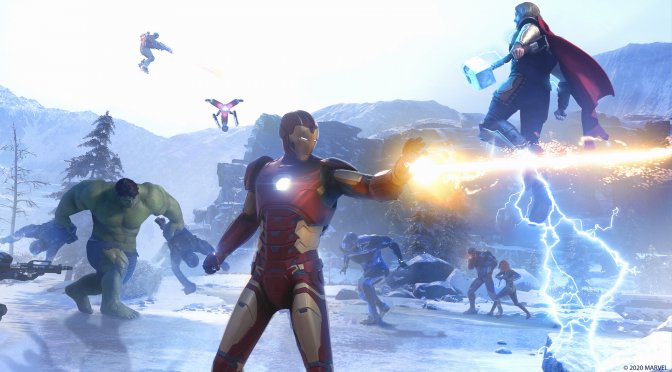Crystal Dynamics and Nixxes have released a new patch for the PC version of Marvel’s Avengers. According to the release notes, the January 29th Update improves stability and performance, and resolves some reports of the DEVICE_HUNG crash.
In addition, this latest update enables Dynamic Resolution Scaling (DRS) with DLSS. When NVIDIA gamers enable DRS along with DLSS, DLSS will dynamically adjust render resolution to deliver maximum image quality while maintaining the target frame rate.
As always, Steam will download this update the next time you launch its client. Below you can also find its complete changelog.
Marvel’s Avengers PC Patch 1.4.1.26 Release Notes
- Improvements to stability and performance, this patch solves some reports of the DEVICE_HUNG crash.
- NVIDIA DLSS in Marvel’s Avengers now supports Dynamic Resolution Scaling (DRS). When DRS is enabled along with DLSS, DLSS dynamically adjusts render resolution to deliver maximum image quality while maintaining the target frame rate.
- When determining settings on the initial run of the game, or when resetting settings to default, the game will now set defaults better tailored to your machine. The selected output resolution will take into account your GPU power, Dynamic Resolution Scaling will be set to 60fps on sufficiently capable hardware, and DLSS will be enabled by default on all hardware that supports it.
- The game now warns players on NVIDIA hardware with drivers older than 461.09 to upgrade. These drivers contain fixes that are important to solid performance and stability of Marvel’s Avengers.

John is the founder and Editor in Chief at DSOGaming. He is a PC gaming fan and highly supports the modding and indie communities. Before creating DSOGaming, John worked on numerous gaming websites. While he is a die-hard PC gamer, his gaming roots can be found on consoles. John loved – and still does – the 16-bit consoles, and considers SNES to be one of the best consoles. Still, the PC platform won him over consoles. That was mainly due to 3DFX and its iconic dedicated 3D accelerator graphics card, Voodoo 2. John has also written a higher degree thesis on the “The Evolution of PC graphics cards.”
Contact: Email

